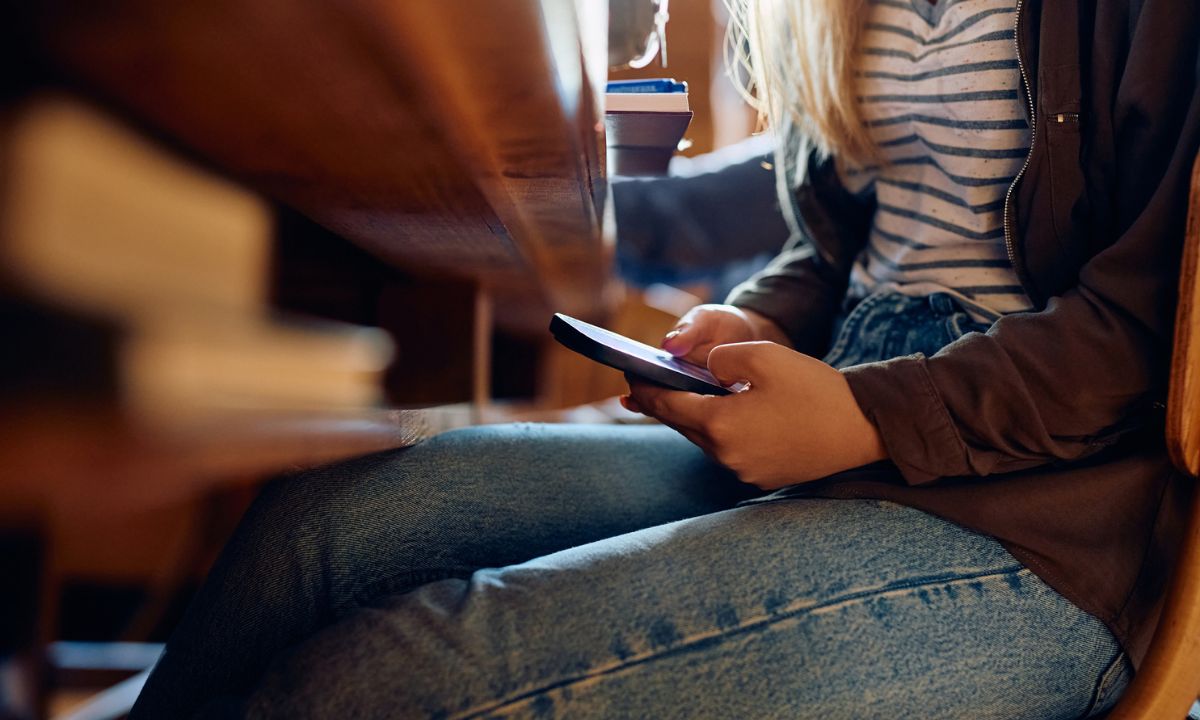LAUSD to Enforce a District-Wide Cell Phone Ban. Here’s What You Need to Know
Los Angeles Unified is the largest school district to ban cell phones.

Get stories like these delivered straight to your inbox. Sign up for The 74 Newsletter
Early next year the Los Angeles Unified School District will become one of the largest school districts in the country to ban cell phones on campus.
Superintendent Alberto Carvalho will roll out a district-wide smartphone ban after the LAUSD school board passed a resolution calling for the prohibition.
School board members expressed concerns over the devices’ disruptive impact on student learning and socialization, referencing a survey saying students view their own phone use as an addiction that can have a disruptive impact on academics and school climate.
Board member Nick Melvoin, who wrote the resolution, told LA School Report concerns about students’ mental health and academic success motivated the push.
“I spend time in schools every week, and have been struck by how often kids are on their phones,” Melvoin said. “We now have over a decade of research that shows the deleterious effects of this on all of us.”
Melvoin’s resolution said the new policy should consider the use of storage lockers, locking pouches and technology to block social media from students’ phones. Melvoin said he hoped Carvalho’s policy would present a menu of options for schools to choose from.
The resolution came just a few months before California lawmakers passed the statewide ‘Phone Free Schools Act,’ requiring districts across California to implement policies that limit or ban student use of cell phones during the school day.
Here’s what you need to know:
1. LAUSD already has a cell phone policy.
Introduced in 2011, LAUSD’s current cell phone policy permits students to have phones on campus but requires the devices to remain off and stored away during class.
Melvoin said decisions regarding the enforcement of the policy have mostly been up to individual schools and teachers, and not always strictly enforced.
With the new policy, Melvoin wants to continue to allow schools to make decisions and include parent and student voices, while also implementing specific guidelines that they must follow.
He said he hoped the district would present a menu of options so schools would be able to choose the use of storage lockers, pouches, or an outright ban.
“We’re working with communities to actually ask them what they want,” Melvoin says.
2. Some LAUSD schools already have policies to ban phones
A number of LAUSD schools, including Culver City High School and Lincoln High School, have already adopted approaches similar to those called for by the school board’s resolution.
According to Culver City’s parent handbook, classrooms have mandated designated areas in each classroom for students to place their phones before the course begins. A policy that is new as of the 2024-2025 school year.
As of 2023, all teachers at LHS are provided with a 48-slot locking case that all students must place their phones in, similar to Melvoin’s proposed “menu.”
Other schools such as Gardena High School and Panorama High School and Magnets have more relaxed policies. Students at these schools are allowed to bring phones in the classroom but they must be turned off and put away, and may be confiscated if caught by a teacher.
Tanya Ortiz-Franklin, an LAUSD board member and co-sponsor of the resolution, noticed an improvement in math scores from a school in her district that has already banned phones.
“Students were even saying themselves, it’s nice to not feel distracted,” Ortiz-Franklin says.
With the impending ban, all high schools will be expected to update their policies in the upcoming school year.
3. The District is just months ahead of a California state ban of cell phones in the classroom, what is the rationale?
Both the state of California and LAUSD referenced studies proving that cell phones are harmful to education in their resolutions.
‘The Phone Free Schools Act,’ referenced a paper published in May 2015 by the London School of Economics, finding that students improved in schools with cell phone bans and that lower-performing students improved exponentially.
The state also referenced Dr. Jean Twenge’s book “iGen” which showed evidence of increased depression and mental health issues in young adults who used social media.
In a New York Times op-ed, released the day after LAUSD passed the new resolution, Dr. Vivek H. Murthy, the U.S attorney general writes that social media should require a label, warning users that the platform is, “associated with significant mental health harms for adolescents.”
Conversations around the harms of social media are heightened now more than ever, and schools are learning to deal with increasing concerns.
4. California is not the only state banning phones
The 2024-2025 school year marks the beginning of many new cell phone bans across the country and may mark a turning point for education in the United States.
LAUSD is joined by Santa Barbara Unified and San Francisco Unified in cell phone bans for the 2024-2025 school year, but California is not the only state banning phones.
Florida was the first state in May of 2023 to bar the use of cell phones, requiring districts to create policies that ban students from using phones during classes.
Louisiana and Indiana have new policies that went into effect this year, and South Carolina, Virginia, Minnesota, and Ohio all have new rules coming online in 2025.
Discussions around a New York City Department of Education cell phone ban have been circulating all summer, but Mayor Eric Adams, says the school is not there yet.
Get stories like these delivered straight to your inbox. Sign up for The 74 Newsletter

;)